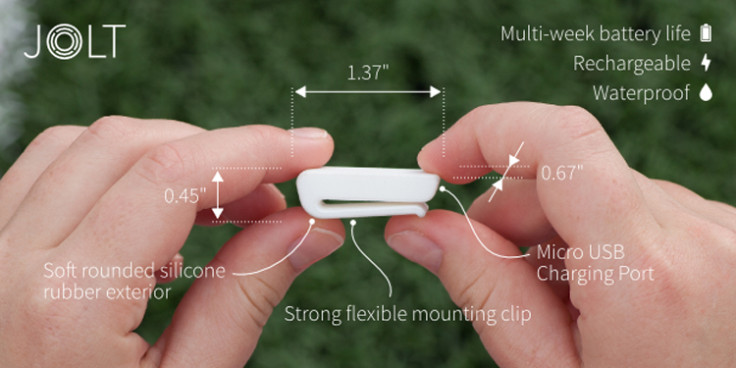Jolt: Startup Invents Wearable Sensor To Detect Head Injuries in Children's Sports

Two MIT graduates have invented a wearable sensor that instantly alerts parents and coaches when a child received a hard blow to the head that could cause a serious injury.
The Jolt Sensor, founded by Ben Harvatine and Seth Berg, was originally an engineering lab project at MIT that was inspired by a concussion suffered by Harvatine during wrestling practice.
The condition was not immediately detected by doctors and became worse as Harvatine's brain was exposed to additional impacts.
The duo realised this problem was prevalent among young athletes, who lack adequate sideline technology and medical personnel to identify and evaluate dangerous head impacts as soon as they happen.
"Through the ensuing hospital visits and months of recovery, the same thought kept crossing my mind – how could this have been prevented?" Harvatine said in his Kickstarter video.
"Many athletes like myself continue to play without realising they've been concussed, so there needs to be a way to alert parents, coaches and athletes of dangerous impacts as soon as they happen."
The Jolt Sensor is a tiny 1.37in smart wearable clip that can be attached to any type of athletic headgear. The sensor vibrates to warn an athlete if it detects that the person's head is accelerating in a potentially dangerous way.
The Jolt Sensor also makes use of Low-Energy Bluetooth technology to wirelessly send an alert to an accompanying iOS and Android smartphone app held by the parent or coach on the sidelines.
The technology enables information to be sent to devices that are up to 50m away, which means it is strong enough to be used on the pitch or court.
The sensor is waterproof and protected by soft silicone rubber. It comes with a micro-USB port and a battery that lasts several weeks on a single charge.
Jolt has just launched its Kickstarter campaign and has already had 132 backers pledge $11,840 (£7,129) within 24 hours, out of the $60,000 goal it hopes to achieve.
Backers will receive the Jolt Sensor if they pledge $75 or more and the startup hopes to ship the devices in April 2015.
© Copyright IBTimes 2024. All rights reserved.






